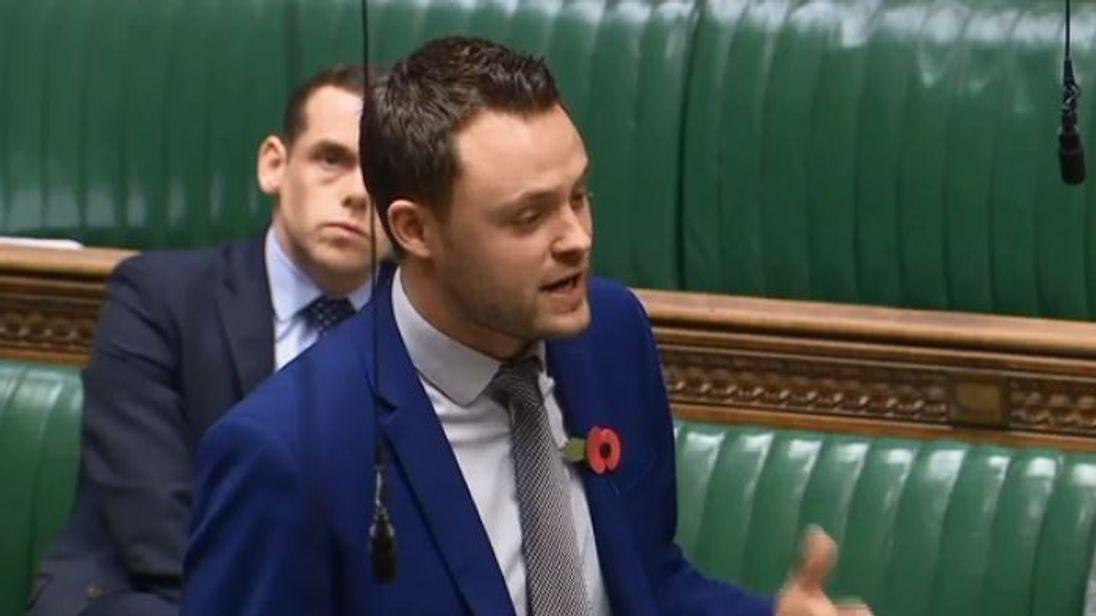
With increasing pressure for politicians to revisit questions from tuition fees to lowering the voting age, The Witness put five youth orientated questions to three young Members of Parliament. They were the Conservative’s Vice Chairman for Youth Ben Bradley MP, 28, Labour’s Shadow Minister for Voter Engagement & Youth Affairs Cat Smith MP, 32, and the Liberal Democrat’s education spokesperson Layla Moran MP, 35. Below is what they had to say.
Paying for higher education: Higher education funding relies on tuition fees of up to £9250 and maintenance loans are to be repaid with high interest. Is this fair and sustainable in its current form? If not what should change?
Ben Bradley: “I think the principle of tuition fees is the right one, in that the alternative is raising tax on people who do not get to access higher education in order to fund it, which has proven in places like Scotland to lead to fewer university places available, and a much higher gap in attendance between richer and poorer students. However I welcome the PM’s plan to look at how the system works, looking again at maintenance grants, interest rates on the loans and other aspects. What we need in truth for a ‘fair’ system is to have an equal focus on non-university routes to ensure everyone has access to the best education”.
Cat Smith: “Even the government has realised that our higher education funding model is neither fair nor sustainable which is why it launched a review earlier this year. No-one should be put off education due to a fear of debt. The Government trebled tuition fees and abolished maintenance loans meaning that students now graduate with debts up to £57,000 with those from low-income backgrounds paying the most. Frankly the government’s long-winded review is a waste of time. Labour will abolish tuition fees, bring back maintenance grants and provide free, lifelong education in further education colleges”.
Layla Moran: “As a party we are currently reviewing our policy which will then be debated and voted on by our party members. It is party members who are responsible for creating and deciding Liberal Democrat policy – not the leadership or MPs – so watch this space!. In the meantime the government needs to restore student maintenance grants as a matter of priority, increase the repayment threshold and put more funding into Further Education Colleges”.

Young people and Brexit: 73% of 18-24 year olds voted remain in the EU referendum. How should their views be reflected in the final Brexit deal outcome?
Ben Bradley: “We need to ensure we come to an arrangement that is open and positive with the EU, ensuring that we maintain as many positive aspects of the arrangement, to have a fair immigration system that ensures job opportunities in Europe remain open to UK citizens, and many other aspects. That said the Referendum result overall was a vote to Leave and we have to respect that. I’m not going to pre-empt the negotiation but my view is that there are many opportunities to be had from Brexit, and that we will reach an outcome that people can be broadly happy with.”
Cat Smith: “We need to deliver a Brexit that puts our economy first in order to secure a positive future for our young people. I therefore support the UK remaining in a customs union with the European Union We must also retain the benefits of the single market and see no drop in rights, protections or standards. How that is achieved must be part of negotiations. Labour would also seek to remain a member of European organisations that offer benefits to the UK such as the Erasmus programme and Horizon 2020″.
Layla Moran: “By being actually listened to once we know all the facts. After all, it is younger people who will have to live with the disastrous consequences of Brexit for decades to come! There must be a people’s vote on the final Brexit deal when we know all the facts, so that the country can decide whether to accept the Brexit deal – or choose to remain in the EU. In the meantime, please make sure your local MP knows what you think about Brexit”.

Votes at 16&17: Young people turned out to vote in considerable numbers in the 2017 General Election. Should votes now be given to 16&17 year olds too?
Ben Bradley: “Figures released recently suggest that actually it was only a 2.5% increase in the turnout amongst young people, not the ‘youthquake’ that had been talked about, but even so it is positive that more young people felt engaged and went to vote. That said I do not believe that votes for 16 & 17 year olds would be right, as in the UK we very clearly define an adult as somebody over the age of 18, and it’s not until that age that you are able to do a huge number of other things, such as get married without parental consent. It’s important politics works to engage with 16 & 17 year olds, absolutely, but I believe that you should get the right to vote when you become an adult”.
Cat Smith: “Lots of young people feel their future is being decided for them. A recent study by Demos found that only 37% of young adults feel that politics reflect issues that matter to them. Last year 950,000 young people voted in the Youth Parliament’s “Make Your Mark” ballet, in which voting at 16 was decided to be one of their top five priorities. Two million people registered to vote when the election was called and we witnessed the highest youth turnout since 1992. This increase in youth engagement shows the interest young adults have in shaping their future and politicians can no longer ignore young peoples’ views.
Through greater access to information, freedom to travel, communication, young people are becoming more and more aware of the power and importance of their vote. In many ways 16- and 17-year-olds are the new citizen generation. One way to make sure that our politics are caught up with the modern age is making sure young people are able to participate in our democracy”.
Layla Moran: “This is a no brainer. Yes, absolutely. I wholeheartedly agree with this, as do the Liberal Democrats. 16 and 17 year olds deserve the vote for all local, regional and national elections – as well as any future referendums”.
Generation rent: According to the PwC 60% of 20-39 year olds will rent their homes by 2025. Should young people aspire to home ownership? If so, what more should be done to promote this?
Ben Bradley: “I think home ownership is something that people should and do aspire to yes, and it’s absolutely true that it has become much harder to afford this for young people. However we’re working to help with this by increasing the number of homes that are built, and through schemes like Help To Buy and scrapping the Stamp Duty for First Time Buyers. That has lead to an increase in recent months of people managing to get on the ladder, and I hope that will continue”.
Cat Smith: “We must address the growing housing crisis in our country. The number of home-owning households has fallen 900,000 for owners under 45 years old. We urgently need to build more genuinely affordable homes for first-time buyers. In our manifesto Labour pledged to build 100,000 council and housing association homes a year for genuinely affordable rent or sale. Alongside measure such as guaranteeing Help to Buy funding and giving local people first refusal on new homes built Labour will ensure that home ownership can again become an achievable aspiration for generation rent”.
Layla Moran: “We need to give people a choice and follow successful models in other country such as Germany. There needs to be genuinely affordable homes to rent and buy, and a range of support, rent-to-own and shared ownership schemes. Affordable is currently classed as 80% of market rate but in areas like mine in Oxfordshire this is nowhere near being affordable”.

Working in politics: Following problems of harassment in Westminster, and abuse faced by politicians on social media – is a career in politics to be recommended?
Ben Bradley: “I think it’s frustrating and rewarding in equal measure, to be honest. I love being able to help my constituents on a personal level, and fighting for my community, but the abuse and other dramas that come along with it are incredibly draining. I would recommend everybody take the time to find out more, to be engaged in their community and investigate properly when deciding how to vote… I fell into politics by accident over a local issue that inspired me to take action, I think many people do the same. So I’d say get involved locally and see where it takes you”.
Cat Smith: “There have been a number of appalling allegations about harassment in Westminster. They seem to follow a similar pattern to allegations raised across the globe – specifically powerful individuals exploiting their positions. One thing they have done is drawn attention to the appalling lack of protection for staff working in Westminster. I am pleased that we now seem to be bringing our workplace practices into the 21st century and very much hope we do not see similar allegations raised in future. I would still however encourage anyone interested in making a positive difference in their communities to engage in the political process as this is how we achieve positive change”.
Layla Moran: “Yes, absolutely. It is a fantastic opportunity to effect change and represent your community”.



Average Rating